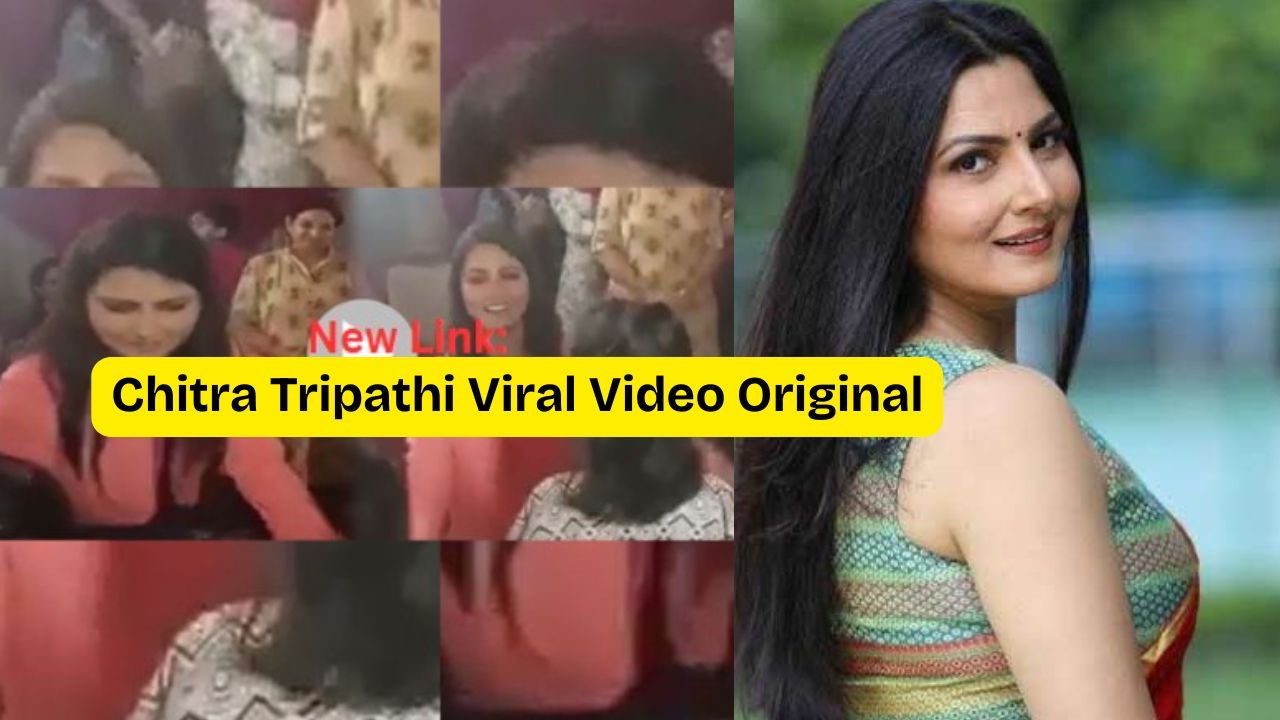News travels fast, but fake news spreads even faster — especially when it features a well-known face like journalist Chitra Tripathi. A video showing the Aaj Tak anchor making bold political claims caught fire online this week. In the clip, she seems to criticize Prime Minister Narendra Modi and predicts a massive win for the Congress-led I.N.D.I.A. alliance in the 2024 elections. She even closes the segment with a dramatic “Jude ga Bharat, Jeetega INDIA.”
Chitra Tripathi Viral Video Link
At first glance, the video looks real. Her lips match the voiceover. The background is her usual news set. But there’s just one problem — she never said those words.
Fact-checkers quickly stepped in. Groups like BOOM, NewsMeter, and Vishvas News took the video apart. They traced the footage back to an episode of her show “Dangal” from July 2023. In the original clip, Chitra was talking about violence in Manipur — not politics or elections. The clip online was edited. Someone took her video, replaced the real audio with a fake voiceover, and then clipped it to make it look like a real news report.

Even the fake voiceover didn’t come out of nowhere. It came from another video posted months ago on the Indian National Congress’s YouTube channel. In that video, a Congress presenter referred to a News 24 survey that predicted a win for the opposition alliance. Someone lifted that audio and dubbed it over Chitra’s video to stir up confusion and maybe mislead viewers before the elections.
Chitra didn’t stay quiet. She posted on X (formerly Twitter) to say that the viral video was fake. She asked people not to believe it and demanded action against whoever spread it. “This is not journalism,” she wrote. “This is character assassination.”
The fake video might look like just another online prank, but it shows how easily someone can take a real clip and twist it into something completely different. A few simple edits, and suddenly a trusted journalist appears to say something she never actually said. This isn’t just about one video or one anchor. It’s a bigger issue with how people use social media — and how little time some of us take to check facts before hitting “share.”
Fake news videos like this can fool even sharp viewers. They look real, sound real, and come from accounts that seem trustworthy. Some people might believe them without a second thought. That’s why fact-checking matters — not just from journalists or watchdogs, but from all of us. When we see a shocking post, it’s smart to pause, look it up, and think twice before spreading it further.
Of course, this isn’t the first time a public figure has become the target of a fake video. It’s becoming more common, especially as political tension builds before big events like elections. Deepfakes and voice-cloning tools make it easier than ever to pull off these stunts. While these tools have harmless uses — like memes or comedy videos — they can also do serious damage when used with bad intentions.
What’s worse is that even after the truth comes out, fake videos don’t just disappear. They stay online, get shared in private messages, and often reach people who never see the correction. That’s why false videos can do real harm, even after people expose them.

In Chitra’s case, several news outlets have now published side-by-side comparisons of the real and fake clips. You can clearly see the mismatch in audio timing and expression. The edits aren’t even that smooth once you slow things down. But in a fast-scrolling feed, most people won’t notice the flaws.
Some people might ask: Why would someone go through so much trouble to create and spread this? The answer might be simple — clicks, attention, and political games. Fake content like this can influence opinions, spark debates, or even push certain hashtags into trending spots. When political heat rises, so do the tricks.
The good news is that Chitra Tripathi’s credibility stands strong. She’s built a name for herself through years of reporting. One fake video won’t change that. And with her quick response, she reminded people that falsehoods can be challenged — and that truth can still win when people pay attention.
So the next time you come across a video that seems too shocking to be true, trust your gut — and verify it. Look for the source, check reliable outlets, and don’t believe everything at face value. Gossip can be fun, but spreading lies helps no one.
In the case of Chitra Tripathi, the facts are clear: she didn’t say what the video claimed. The internet might twist stories, but the truth still matters. And if nothing else, let this be a reminder — never underestimate the power of editing, or the importance of checking twice before sharing once.

